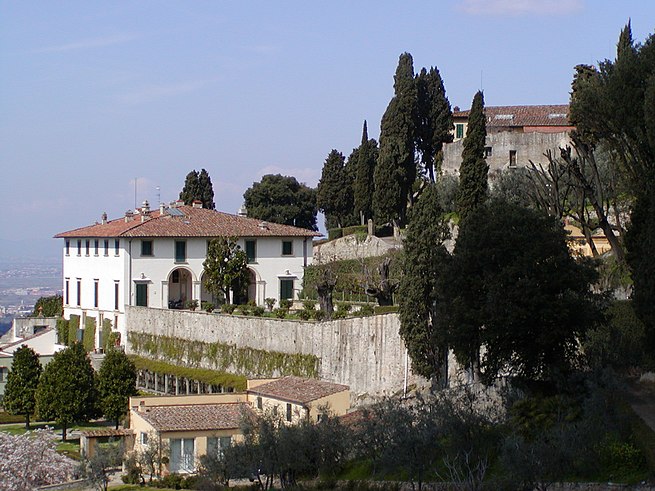
Main Difference
The main difference between Villa and Cottage is that the Villa is a independent-standing house and Cottage is a typically, a small house.
-
Villa
A villa was originally an ancient Roman upper-class country house. Since its origins in the Roman villa, the idea and function of a villa have evolved considerably. After the fall of the Roman Republic, villas became small farming compounds, which were increasingly fortified in Late Antiquity, sometimes transferred to the Church for reuse as a monastery. Then they gradually re-evolved through the Middle Ages into elegant upper-class country homes. In modern parlance, “villa” can refer to various types and sizes of residences, ranging from the suburban semi-detached double villa to residences in the wildland–urban interface.
-
Cottage
A cottage is, typically, a small house. It may carry the connotation of being an old or old-fashioned building. In modern usage, a cottage is usually a modest, often cosy dwelling, typically in a rural or semi-rural location.
The word comes from the architecture of England, where it originally referred to a house with ground floor living space and an upper floor of one or more bedrooms fitting under the eaves. In British English the term now denotes a small dwelling of traditional build, although it can also be applied to modern construction designed to resemble traditional houses (“mock cottages”). Cottages may be detached houses, or terraced, such as those built to house workers in mining villages. The tied accommodation provided to farm workers was usually a cottage, see cottage garden. Peasant farmers were once known as cotters.
The holiday cottage exists in many cultures under different names. In American English, “cottage” is one term for such holiday homes, although they may also be called a “cabin”, “chalet”, or even “camp”. In certain countries (e.g. Scandinavia, Baltics, and Russia) the term “cottage” has local synonyms: In Finnish mökki, in Estonian suvila, in Swedish stuga, in Norwegian hytte (from the German word Hütte), in Slovak chalupa, in Russian дача (dacha, which can refer to a vacation/summer home, often located near a body of water).
There are cottage-style dwellings in American cities that were built primarily for the purpose of housing slaves
In places such as Canada, “cottage” carries no connotations of size (compare with vicarage or hermitage).
-
Villa (noun)
A house, often larger and more expensive than average, in the countryside or on the coast, often used as a retreat.
-
Villa (noun)
A family house, often semi-detached, in a middle class street.
-
Villa (noun)
A country house, with farm buildings around a courtyard.
-
Cottage (noun)
A small house; a cot; a hut.
-
Cottage (noun)
A seasonal home of any size or stature. A recreational home or a home in a remote location.
“Most cottages in the area were larger and more elaborate than my home.”
-
Cottage (noun)
A public lavatory
-
Cottage (verb)
To stay at a seasonal home, to go cottaging.
-
Cottage (verb)
To have homosexual sex in a public lavatory; to practice cottaging.
-
Villa (noun)
(especially in continental Europe) a large and luxurious country house in its own grounds.
-
Villa (noun)
a detached or semi-detached house in a residential district, typically one that is Victorian or Edwardian in style
“Madison Villas”
-
Villa (noun)
a rented holiday home abroad.
-
Villa (noun)
a large country house of Roman times, having an estate and consisting of farm and residential buildings arranged around a courtyard.
-
Cottage (noun)
a small house, typically one in the country
“a holiday cottage”
-
Cottage (noun)
a simple house forming part of a farm, used by a worker
“farm cottages”
-
Cottage (noun)
(in the context of casual homosexual encounters) a public toilet.
-
Cottage (verb)
perform homosexual acts in a public toilet
“I was busted for cottaging”
